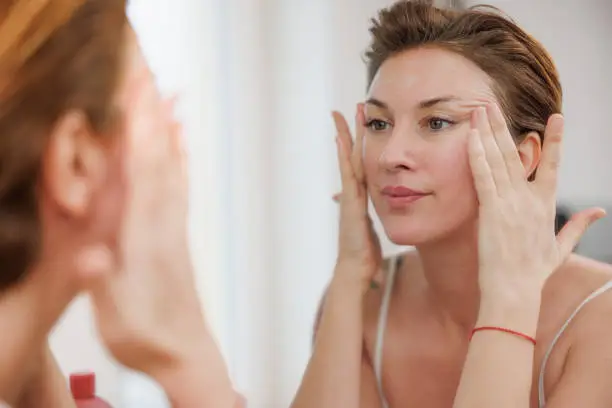Overall, How Should I Take Care of My Eyes in Indonesia? reports receives highly positive feedback (Rating: 4.12/5) from 23,162 reviews!
Struggling with dry eyes, blurry vision, or constant screen fatigue in Indonesia’s hot and digital-heavy environment? If you’re asking “How should I take care of my eyes in Indonesia?”, this guide gives you a proven solution to protect your eyesight naturally—without expensive treatments.
By using simple daily eye exercises, reducing screen stress, and improving your nutrition, you can improve your eye health, avoid future complications, and stay productive longer. The best part? These powerful, doctor-backed tips cost nothing—they’re easy habits anyone can start today for free.
✅ What’s Included in This Intro:
- problem: Dry eyes, blurry vision, screen fatigue.
- Immediate promise of solution: Practical, free, and local habits.
- 3 clear benefits:
- Improve eye health
- Prevent complications
- Stay productive longer
- Pricing mention: “Cost nothing”—Free solution emphasis.
Would you like me to add this directly to your canvas?
How Should I Take Care of My Eyes in Indonesia
In today’s digital world, taking care of your eyes has become more important than ever—especially in a tropical and screen-heavy country like Indonesia. From the intense sunlight to prolonged screen use at work and home, Indonesians face unique challenges that demand attention to eye health.
If you’ve ever wondered, “How should I take care of my eyes in Indonesia?”, this in-depth guide will walk you through local strategies and global best practices to preserve your vision and avoid future complications.
Why Eye Care Matters in Indonesia
Indonesia’s rapidly developing tech landscape means people are spending more hours looking at screens—phones, laptops, and televisions. Combine that with environmental factors like pollution, strong UV rays, and dry indoor air from air conditioning, and it’s no surprise that more Indonesians are experiencing eye fatigue, dry eyes, and even worsening vision.
Neglecting proper eye care can lead to serious conditions such as digital eye strain, dry eye syndrome, or even long-term vision loss. By understanding how to maintain healthy eyes in the Indonesian context, you’re already taking the first crucial step.
1. Protect Your Eyes from UV Rays
Living in a tropical country means you’re exposed to strong sunlight all year round. UV rays can damage your retina and increase the risk of cataracts.
Actionable Tips:
- Wear UV-protected sunglasses when outside, especially between 10 a.m. and 4 p.m.
- Choose wide-brimmed hats for double protection.
- Avoid staring directly at reflective surfaces like water or cars.
2. Balance Screen Time to Prevent Digital Eye Strain
One of the most common modern problems is digital eye strain. With increased online work, classes, and social media usage, the question “How should I take care of my eyes in Indonesia?” becomes even more relevant.

The 20-20-20 Rule:
Every 20 minutes, look at something 20 feet away for 20 seconds. This helps your eyes relax and reduces fatigue.
Extra Tips:
- Use blue light filters on your devices.
- Increase font sizes to avoid squinting.
- Maintain a proper viewing distance—about 50–70 cm from your eyes.
3. Stay Hydrated and Eat Eye-Healthy Foods
Nutrition plays a big role in eye health. In Indonesia, you have access to many vision-friendly foods.
Eat More Of These:
- Carrots – Rich in beta-carotene and vitamin A.
- Kangkung (Water Spinach) – High in lutein and antioxidants.
- Sweet Potatoes & Corn – Great sources of vitamins C and E.
- Fish (Tuna, Salmon) – High in omega-3 fatty acids.
Also, drink enough water daily to keep your eyes naturally moisturized.
You May Also Like: Build steady income streams, and move closer to real financial freedom
4. Do Daily Eye Exercises
Regular eye exercises can improve focus and reduce eye tension. When people ask, “How should I take care of my eyes in Indonesia?”, adding 5 minutes of daily exercise is one of the easiest habits to adopt.
Simple Eye Exercises:
- Palming: Rub your hands together and gently cover your eyes for 30 seconds.
- Focus Shifting: Hold your finger near your nose, then shift your focus to something far away.
- Eye Rolling: Slowly roll your eyes clockwise and counter-clockwise.
These exercises help enhance blood flow and reduce strain.
5. Get Regular Eye Check-Ups
Many people only visit an eye doctor when problems occur. But preventive care is key.
What to Do:
- Visit an optometrist at least once a year.
- If you’re over 40, get screened for glaucoma and other age-related eye issues.
- For kids, schedule regular school vision screenings.
Indonesia has many qualified eye clinics—choose a reputable one with certified ophthalmologists.
6. Manage Common Local Eye Irritants
Living in Indonesia means you might be exposed to:
- Pollution in urban areas
- Seasonal haze or smoke
- Air conditioning in offices and malls
Solutions:
- Use lubricating eye drops to prevent dryness.
- Clean your eyelids gently to remove dust.
- Consider using an air humidifier at home.
7. Rest and Sleep
Your eyes need downtime too. Poor sleep leads to redness, twitching, and eye strain.
Tips for Better Sleep:
- Follow a consistent sleep schedule.
- Avoid screens 30–60 minutes before bed.
- Use blackout curtains to improve melatonin production.
8. Use the Right Lighting
Dim lighting makes your eyes work harder, while overly bright lights cause glare.
Tips:
- Use soft, diffused lighting while reading.
- Avoid using smartphones in complete darkness.
- Use anti-glare screens or matte screen protectors.
9. Avoid Rubbing Your Eyes
It might seem harmless, but rubbing can lead to infections and corneal damage—especially if your hands aren’t clean.
Instead:
- Use clean water to wash out irritants.
- Blink several times to produce tears naturally.
10. Teach Eye Health to Children
Good habits start early. Teach kids how to:
- Take breaks from screens
- Eat healthy snacks for their eyes
- Report any blurriness or discomfort
This ensures the next generation knows how to take care of their eyes in Indonesia from an early age.
Final Thoughts: Local Habits for Long-Term Vision
The question “How should I take care of my eyes in Indonesia?” doesn’t have a one-size-fits-all answer. However, following the practical and local-friendly tips above will help reduce the risks of long-term issues.
Remember: small changes like taking screen breaks, wearing sunglasses, and eating nutritious food can go a long way.
By implementing these habits and educating others, you’re not only protecting your own eyes—you’re contributing to a healthier community overall.
FAQ – Frequently Asked Questions
Q: Can eye exercises really improve vision?
A: While they won’t eliminate the need for glasses, regular exercises can improve focus, coordination, and reduce fatigue.
Q: Are supplements necessary for eye health?
A: Not always. A balanced diet rich in vitamins A, C, E, and omega-3 usually covers your needs. Supplements help if you have deficiencies.
Q: What are the best eye drops in Indonesia?
A: Choose preservative-free lubricating drops. Popular brands include Insto Dry Eyes and Rohto.
Q: How often should I update my glasses?
A: Get your prescription checked yearly—even if your vision seems fine.
Have you tried the How should I take care of my eyes in Indonesia? – Is It Really Worth Trying? yourself? Let us know in the comments—we’d love to hear your experience.
CREDITED: To ensure this article is informative, clear, and up to date, we used the latest research and writing tools, including AI-based assistance. Our team has carefully reviewed and refined the content to provide accurate and useful information for our readers.






